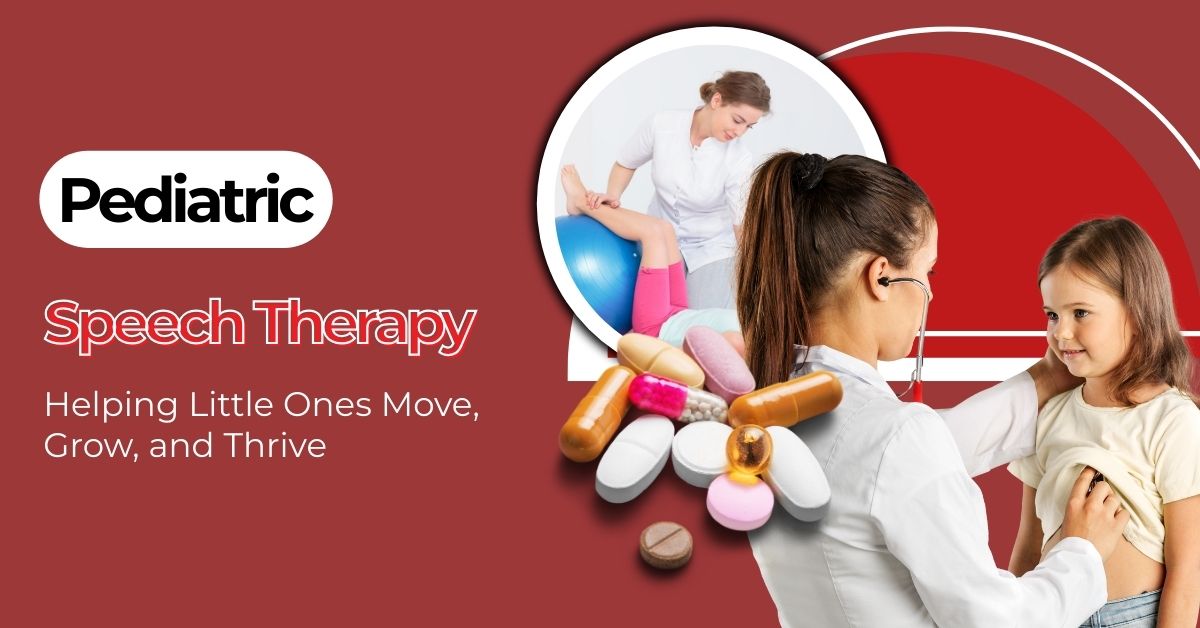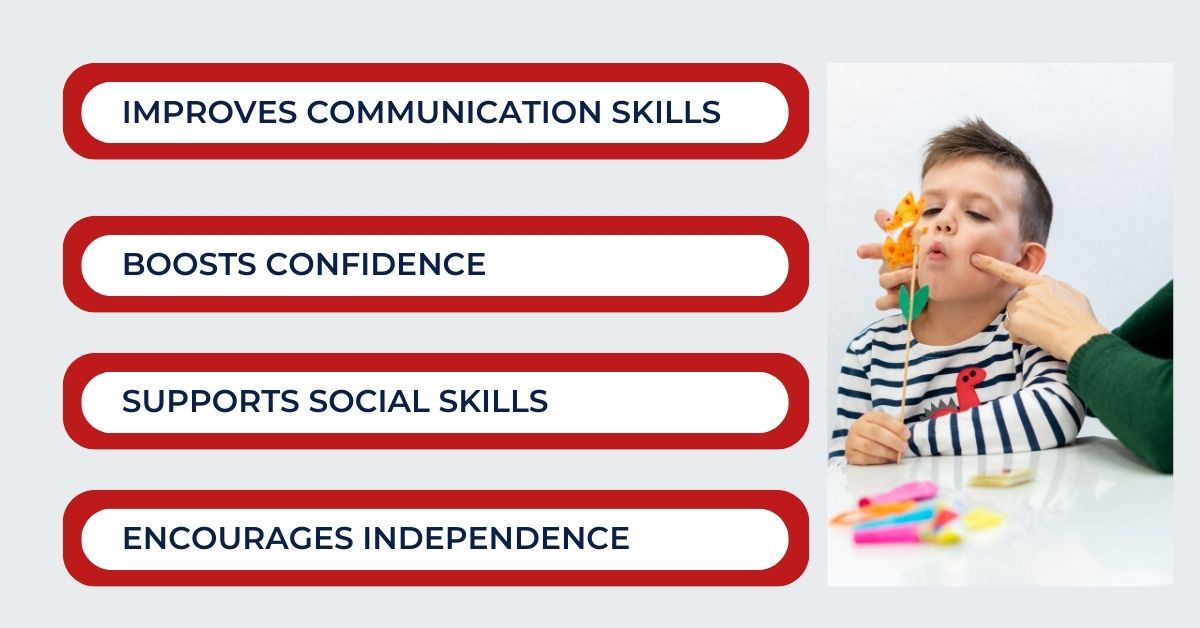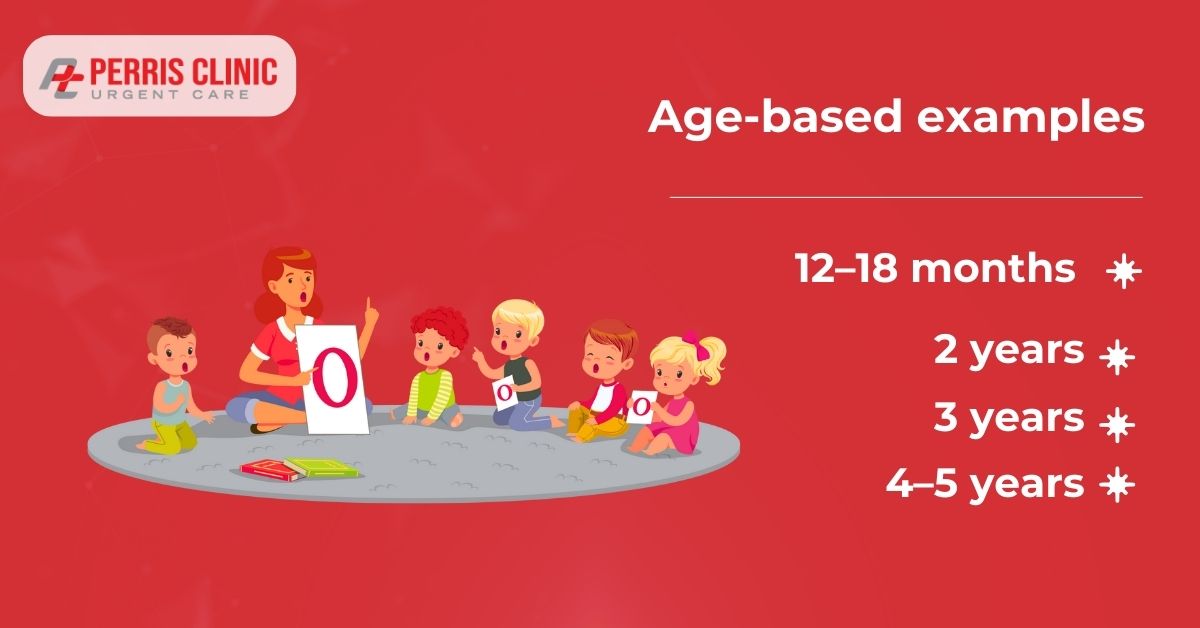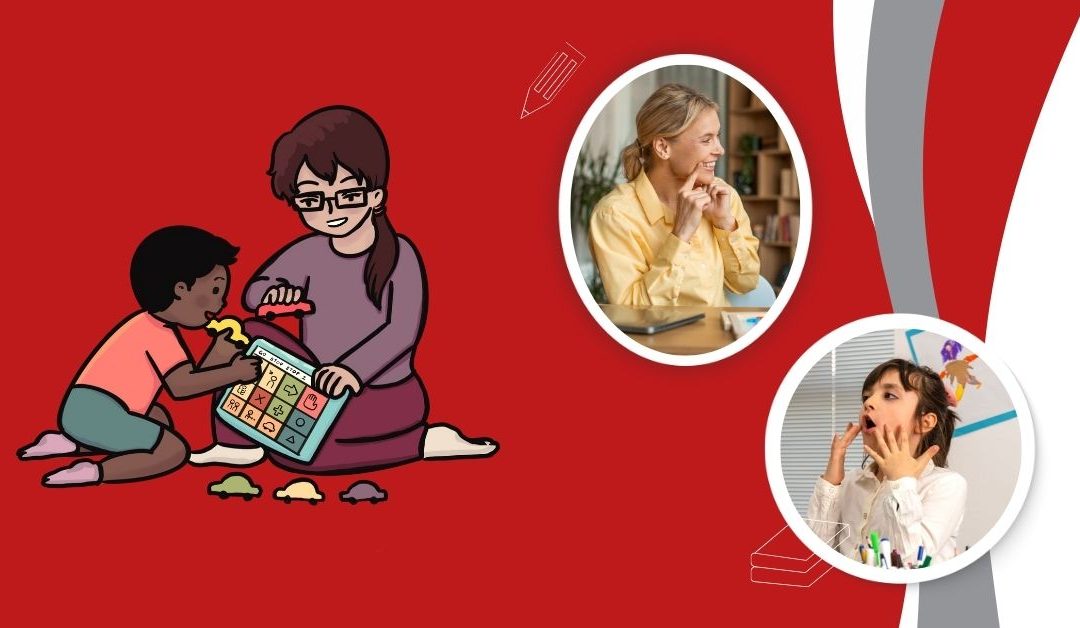Every child deserves the chance to speak, understand, and be understood. Communication is a vital part of growing up, learning, and forming relationships. However, children may sometimes struggle with speech or language development. That’s where Pediatric Speech Therapy can help.
At Perris Clinic, we recognize the importance of children being able to communicate clearly and confidently. Whether your child is having trouble saying words, understanding directions, or forming complete sentences, Children’s Speech Therapy provides the support they need to thrive.
Before you dive into this post, don’t miss our previous blog, What Are the Benefits of Speech and Language Therapy?, a helpful guide for anyone facing challenges with communication or swallowing.
What Is Pediatric Speech Therapy?

Pediatric Speech Therapy is a type of therapy that helps children improve their speaking, listening, and language skills. It is typically provided by a trained professional known as a speech-language pathologist (SLP). These experts work with children of all ages to help them communicate more effectively.
Pediatric Communication Therapy can support children with the following:
- Speech delays
- Stuttering
- Difficulty pronouncing sounds
- Problems understanding or using language
- Voice issues (too loud, too soft, or hoarse)
- Feeding or swallowing difficulties
Why Do Some Children Need Speech Therapy?
There are several reasons why a child may require assistance with speech and language development. Some children are late talkers, while others may have conditions such as autism, hearing loss, or developmental delays.
Here are a few common signs that a child may benefit from Children’s Speech Therapy:
- Not using as many words as other children their age
- Trouble putting words together into sentences
- Difficulty saying certain sounds (like “r,” “l,” or “s”)
- Stuttering or repeating words
- Not understanding what others are saying
- Difficulty with reading and writing
If your child exhibits any of these signs, early intervention can make a significant difference.
Curious about the length of an occupational therapy session? Learn what to expect during a typical appointment and how it supports your progress here.
Why Is Pediatric Speech Therapy Important?

Child Language Development Therapy plays a significant role in a child’s overall development. Here’s why it matters:
1. Improves Communication Skills: Children learn how to express their thoughts, needs, and feelings more clearly. This makes it easier for them to talk to family, friends, and teachers.
2. Boosts Confidence: Kids feel more confident when they can speak clearly and be understood. This helps them build self-esteem and feel proud of their progress.
3. Support Social Skills: Effective communication is essential for forming friendships and participating in group activities. Speech therapy helps children learn how to initiate conversations, take turns speaking, and understand nonverbal cues, such as body language and facial expressions.
4. Helps in School: Many school tasks, like reading, writing, and answering questions, require strong language skills. Pediatric speech therapy equips children with the necessary tools to succeed in the classroom.
5. Encourages Independence: When children can ask for what they need and express their feelings, they become more independent and better able to manage everyday situations.
What Happens in a Speech Therapy Session for Children?
Speech therapy sessions are designed to be fun and engaging. Therapists often utilize games, books, flashcards, and play-based activities to aid children in their learning. Each session is customized to your child’s age, needs, and goals.
Here’s what you can expect:
- Assessment: The therapist will evaluate your child’s current communication skills.
- Goal Setting: Based on the assessment, they will create a plan with specific goals.
- Activities: Your child will do speech exercises, play word games, practice sounds, and learn new vocabulary.
- Home Practice: You’ll receive tips and simple activities to help you continue your progress at home.
Therapists also involve parents so they can support their child outside of therapy.
When Should You Consider Speech Therapy for Your Child?

If you’re unsure whether your child needs help, it’s always okay to ask. Early intervention is key. The earlier your child starts therapy, the better their chances of success will be.
Here are some age-based examples:
- 12–18 months: Not babbling, not using gestures like waving or pointing
- 2 years: Using fewer than 50 words, not combining two words
- 3 years: Speech is hard to understand, trouble forming sentences
- 4–5 years: Stuttering, trouble understanding stories or instructions
If you notice these signs, don’t wait. Pediatric Speech Therapy can guide your child toward strong communication skills.
Frequently Asked Questions (FAQs)
1. What age should a child start Pediatric Speech Therapy?
Children can begin speech therapy as early as 18 months if there are noticeable delays in speech or language development. Early signs may include limited babbling, a lack of eye contact, or failure to respond to sounds. Early intervention is crucial, as it enables therapists to support development at a time when the brain is most adaptable, resulting in faster and more effective outcomes.
2. How long does speech therapy take?
The duration of therapy varies depending on the child’s individual challenges, goals, and progress. Some children may benefit from short-term treatment over a few months, especially if their delay is mild. Others with more complex needs, such as speech disorders related to autism or neurological conditions, may need ongoing support over a year or longer. Regular assessments help adjust therapy plans to ensure steady improvement.
3. Can Pediatric Speech Therapy help with reading problems?
Yes! There is a strong link between spoken and written language. Children who struggle with speech often face challenges in reading, spelling, and writing. Early Childhood Speech Intervention helps build foundational language skills, such as phonemic awareness and vocabulary, which are essential for learning to read and write. Enhancing oral language skills can lead to improved overall academic performance.
4. Is speech therapy just about talking?
Not at all. While improving speech sounds is a key part, Language and Communication Therapy for Children also focuses on a wide range of communication skills. This includes understanding and using language, improving listening skills, developing social communication skills (such as taking turns in conversation), and addressing feeding and swallowing issues in younger children. Therapy is holistic and tailored to each child’s unique needs.
5. How do I know if my child needs therapy?
Suppose your child is not meeting common communication milestones for their age, such as not speaking by age 2, using very few words, or being difficult to under. In that case, it may be time to consult a speech-language pathologist. Other red flags include frequent frustration when trying to communicate, stuttering, or difficulty following directions. A professional evaluation will help determine whether Pediatric Speech Therapy is necessary and what support is best for your child.
6. What can I do at home to help my child’s speech development?
Parental involvement is a big part of successful therapy. Here are a few simple things you can do at home:
- Talk frequently to your child using clear, simple language.
- Read together every day to build vocabulary and comprehension.
- Sing songs and rhymes, which help with sound patterns and memory.
- Play word and naming games, like “I Spy” or flashcards.
Follow your therapist’s guidance and complete home activities to reinforce learning between sessions.
Consistent support at home, combined with professional therapy, creates the most effective path for progress.
Conclusion
Every child deserves a voice, and Pediatric Communication Therapy helps make that happen. At Perris Clinic, we work with children and their families to overcome speech and language challenges in a supportive, fun, and caring environment.
Whether your child needs help with pronunciation, vocabulary, or social skills, our team is here to support them in developing into confident communicators.
If you’re concerned about your child’s speech or language development, we’re here to support you.
Contact us at Perris Clinic today to learn more about our Pediatric Speech Therapy services.


Trackbacks/Pingbacks